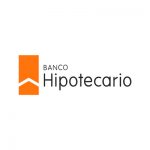Albanesi Energía S.A.’s US$ 175 million loan refinancing

Legal counsel to UBS Investment Bank as arranger in Albanesi Energía S.A.’s US$ 175,000,000 loan refinancing (2021).
Albanesi Energía S.A. (“AESA”), an electricity-generating subsidiary of the Argentine energy group Albanesi, has successfully refinanced a secured credit facility granted by UBS Investment Bank in 2017 for an amount of USD 175,000,000, intended to finance the construction and commissioning of co-generation project in the Province of Santa Fe, Argentina. The financing, originally scheduled to mature on December 2021, will mature on December 2023. The transaction allowed AESA to improve its debt maturity profile as well as to comply with mandatory refinancing requirements imposed by the Argentine Central Bank to local companies by Communications “A” 7106 and 7230.
Legal Advice in Petrolera Aconcagua Energía S.A.’s Second PyME Notes Issuance

Counsel to Petrolera Aconcagua Energía S.A. issuance of Class III PYME CNV Notes for U$S 2,258,700 and Class IV PYME CNV Notes for $ 330,957,446, under the Program of PYME Notes for an amount of up to $ 900,000,000.
Class III and Class IV Notes were issued for the purpose of carrying out investments in assets located in Argentina, including investments in production infrastructure and oil and gas developments.
Banco de Servicios y Transacciones S.A. acted as arranger and placement agent, and Banco Supervielle S.A., Banco Mariva S.A., SBS Trading S.A., Consultatio Investments S.A., Allaria Ledesma & Cia. S.A. and AdCap Securities Argentina S.A. acted as placement agents of the Class III and Class IV Notes.
Legal Advice in the Issuance of Notes of Albanesi Group for US$4,265,575
 Counsel to Generación Mediterránea S.A. and Central Térmica Roca S.A. in the co-issuance of 12.5% Class IX Notes for US$4,265,575 due April 9, 2024 issued under the Global Notes Program for an amount of up to US$700,000,000, in exchange of their Class III Notes issued on December 4, 2019 for US$25,730,782.
Counsel to Generación Mediterránea S.A. and Central Térmica Roca S.A. in the co-issuance of 12.5% Class IX Notes for US$4,265,575 due April 9, 2024 issued under the Global Notes Program for an amount of up to US$700,000,000, in exchange of their Class III Notes issued on December 4, 2019 for US$25,730,782.
SBS Capital S.A. acted as arranger agent, Banco de Servicios y Transacciones S.A, SBS Trading S.A., and TPCG Valores S.A.U. acted as placement agents of Class IX Notes.
The announcement, pricing, and issuance and settlement of Class IX Notes took place in one single day, on April 9, 2021.
Legal Advice in the Issuance of Notes of Albanesi Group for US$40,000,000

Counsel to Generación Mediterránea S.A. and Central Térmica Roca S.A. in the co-issuance of 6% Class VII Notes for US$7,707,573 due March 11, 2023 and of 4.60% Class VIII Notes for 41,936,497 UVAs (Unidades de Valor Adquisitivo) due March 11, 2023. Class VII Notes and Class VIII Notes were issued under the Global Notes Program for an amount of up to US$700,000,000, and a portion of both classes were issued in exchange of: Class III Notes issued by Albanesi S.A. on June 15, 2017 for $255,826,342; and/or Class VIII Notes issued by Generación Mediterránea S.A. on August 29, 2017 for $312,884,660; and/or Class XI Notes issued by Generación Mediterránea S.A. on June 23, 2020 for US$ 9,876,755; and/or Class IV Notes issued by Central Térmica Roca S.A. on July 24, 2017 for $291,119,753.
SBS Capital S.A. and Banco de Servicios y Transacciones S.A. acted as arranger agents, Banco de Servicios y Transacciones S.A, SBS Trading S.A., Banco de la Provincia de Buenos Aires, Balanz Capital Valores S.A.U., TPCG Valores S.A.U., Macro Securities S.A. and Allaria Ledesma & Cía. S.A. acted as placement agents and BACS Banco de Crédito y Securitización S.A., Facimex Valores S.A., Banco Supervielle S.A., Sociedad de Bolsa Centaurus S.A. and AdCap Securities Argentina S.A. acted as sub-placement agents of Class VII Notes and Class VIII Notes.
Province of Chubut’s Series LXV Class 1 and Class 2 Treasury Notes Issuance for AR$ 135,632,000
 Legal counsel to Puente Hnos. S.A., as placement agent in the issuance of Province of Chubut’s Series LXV Class 1 and Class 2 Treasury Notes (the “Treasury Notes Series LXV”). The Treasury Notes Series LXV are secured by certain rights of the Province of Chubut to receive amounts under the federal tax co-participation regime and were issued for AR$ 135,632,000. Class 1 has a fixed annual nominal rate equivalent to 36.75% and is due on April 7, 2021. Class 2 has a fixed annual nominal rate equivalent to 36.90% and is due on May 6, 2021.
Legal counsel to Puente Hnos. S.A., as placement agent in the issuance of Province of Chubut’s Series LXV Class 1 and Class 2 Treasury Notes (the “Treasury Notes Series LXV”). The Treasury Notes Series LXV are secured by certain rights of the Province of Chubut to receive amounts under the federal tax co-participation regime and were issued for AR$ 135,632,000. Class 1 has a fixed annual nominal rate equivalent to 36.75% and is due on April 7, 2021. Class 2 has a fixed annual nominal rate equivalent to 36.90% and is due on May 6, 2021.
Municipality of Cordoba’s Series XLI Treasury Notes Issuance for AR$900,000,000








Legal counsel to the Municipality of Cordoba’s, as issuer, Banco de la Provincia de Córdoba S.A., as arranger and placement, and to Banco de Servicios y Transacciones S.A., Puente Hnos. S.A., AdCap Securities Argentina S.A., Banco de la Ciudad de Buenos Aires, Banco Hipotecario S.A. and SBS Trading S.A., as placement agents, in the issuance of Municipality of Cordoba’s Series XLI Treasury Notes (the “Treasury Notes Series XLI”), under the Municipality of Cordoba’s Treasury Notes Issuance Programme (the “Programme”). The transaction closed on March 2, 2021 and the payments due under the Treasury Notes Series XLI are secured by certain rights of the Municipality to collect certain contribution charges over the commercial, industrial and services activity. The Treasury Notes Series XLI were issued for AR$900,000,000 at an annual floating interest rate equivalent to Badlar plus 4.25%, due on November 27, 2021.
Province of Chubut’s Series LXII Treasury Notes Issuance for AR$ 326,483,820

Legal counsel to Puente Hnos. S.A., as placement agent in the issuance of Province of Chubut’s Series LXII Treasury Notes (the “Treasury Notes Series LXII”). The Treasury Notes Series LXII are secured by certain rights of the Province of Chubut to receive amounts under the federal tax co-participation regime and were issued for AR$ 326,483,820, fixed annual nominal rate equivalent to 37.00%, due on March 26, 2021.
Province of Chubut’s Series LXI Class 1, Class 2 and Class 3 Treasury Notes Issuance for AR$ 1,036,552,000
 Legal counsel to Puente Hnos. S.A., as placement agent in the issuance of Province of Chubut’s Series LXI Treasury Notes (the “Treasury Notes Series LXI”). The Treasury Notes Series LXI are secured by certain rights of the Province of Chubut to receive amounts under the federal tax co-participation regime and were issued in three classes amounting to AR$ 1,036,552,000. Class 1 has a fixed annual nominal rate equivalent to 37.15% and is due on March 8, 2021. Class 2 has a fixed annual nominal rate equivalent to 39.25% and is due on May 6, 2021. Class 3 has a fixed annual nominal rate equivalent to 42.00% and is due on August 4, 2021.
Legal counsel to Puente Hnos. S.A., as placement agent in the issuance of Province of Chubut’s Series LXI Treasury Notes (the “Treasury Notes Series LXI”). The Treasury Notes Series LXI are secured by certain rights of the Province of Chubut to receive amounts under the federal tax co-participation regime and were issued in three classes amounting to AR$ 1,036,552,000. Class 1 has a fixed annual nominal rate equivalent to 37.15% and is due on March 8, 2021. Class 2 has a fixed annual nominal rate equivalent to 39.25% and is due on May 6, 2021. Class 3 has a fixed annual nominal rate equivalent to 42.00% and is due on August 4, 2021.
Legal counsel in the successful restructuring of the Province of Cordoba’s notes issued under foreign law for USD 1,669,405,000


Counsel to the Province of Cordoba and Banco de la Provincia de Cordoba S.A. in the restructuring notes issued in the international capital markets for USD 1,669,405,000. Under this transaction, the Province of Cordoba received consents from holders representing 96.29% of the aggregate principal amount of its outstanding notes, represented by the following series: (i) 7.125% Notes due 2021, (ii) 7.450% Notes due 2024, and (iii) 7.125% Notes due 2027, which allowed the application of the collective action clauses in each indenture to modify all such notes.
Our partner Marcelo R. Tavarone commented on this transaction: "We are proud and happy to have assisted the Province of Córdoba in the reprofiling of its international financial debt. It has been a very demanding transaction, in which the interest and rights of the Province had to been protected and, at the same time, bear in mind the claims of the different investors. A rescheduling of payments and a reduction in the applicable interest rates was obtained and this is an important achievement that will benefit the people of Córdoba".
Legal advice in the consent solicitation of Generación Mediterránea S.A. and Central Térmica Roca S.A. relating their Series II Senior Secured Notes

Counsel to Generación Mediterránea S.A y Central Térmica Roca S.A., companies of the Albanesi Group, in the consent solicitation relating their U.S.$ 80,000,000 aggregate principal amount of Series II Senior Secured Notes due 2023.



